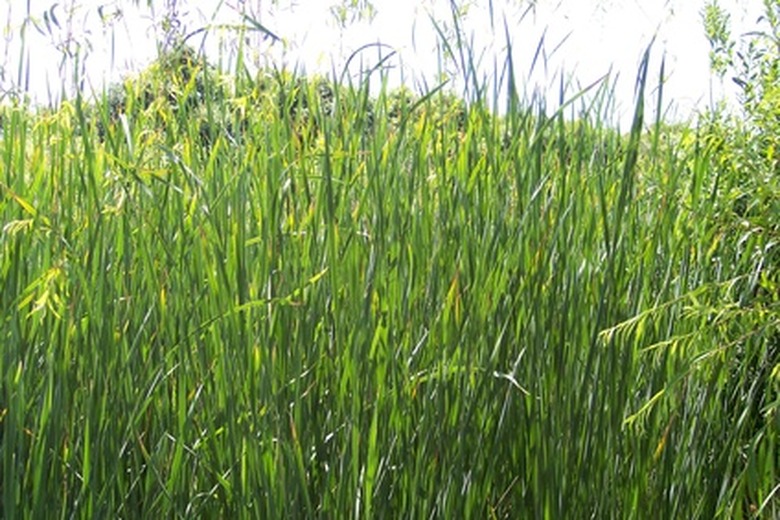Do Ticks Live In The Grass?
Ticks can spread many diseases including Lyme disease, Rocky Mountain Spotted Fever and tularemia, according to the Centers for Disease Control and Prevention. Because ticks can live on long grasses and vegetation, mowing your lawn and keeping a tidy back yard is necessary.
Ticks can spread many diseases including Lyme disease, Rocky Mountain Spotted Fever and tularemia, according to the Centers for Disease Control and Prevention. Because ticks can live on long grasses and vegetation, mowing your lawn and keeping a tidy back yard is necessary. Doing so creates an environment that is unfriendly to adult ticks and tick larvae.
Function
Tick larvae use long grass and other tall vegetation as a means to get onto their hosts' bodies. They climb to the top or near the top of long grasses and assume a pose called a "questing position." They hold onto the grass blade with their back two pairs of legs and keep the forelegs stretched out, ready to grab onto the body of any warm-blooded body that walks by.
Prevention
Because tick larvae rely on tall plants such as grass blades to come into contact with hosts, you should mow your lawns to less than 3 inches tall. Trim trees so that more sunlight saturates the lawn. Higher temperatures and lower humidity are detrimental to tick adults and larvae. Trim the bottom branches of bushes and shrubs so their foliage does not touch the ground. Cut back ground covering plants like ivy on areas immediately touching homes and where children or pets play.
- Ticks can spread many diseases including Lyme disease, Rocky Mountain Spotted Fever and tularemia, according to the Centers for Disease Control and Prevention.
- Because tick larvae rely on tall plants such as grass blades to come into contact with hosts, you should mow your lawns to less than 3 inches tall.
Keeping Away Wild Animals
Modifying lawns and yards so they are less tick-friendly also makes them less inviting to rodents, which may carry ticks. Remove piles of stones, branches or leaves where rodents can make nests. Move bird feeders a few feet away from the home because birds can carry ticks. Keep garbage in cans with tight lids and, if necessary, locks so that animals like raccoons cannot get to the garbage. Deer are hosts to the ticks that carry Lyme disease. Install an electric fence if deer regularly feed on the lawn.
Repellent
Always wear a tick repellent such as DEET before venturing outside during tick season. You can spray permethrin repellents on clothes but not skin. Always check your clothes, children and pets after roaming about in areas with long grasses and weeds, such as parks, woodlands or a yard that has not been mowed in a long time. Tick bites do not hurt, so a person may not be aware that he or she is carrying ticks.
- Modifying lawns and yards so they are less tick-friendly also makes them less inviting to rodents, which may carry ticks.
- Keep garbage in cans with tight lids and, if necessary, locks so that animals like raccoons cannot get to the garbage.
